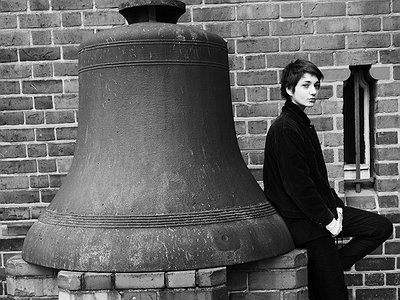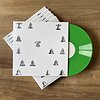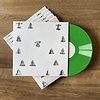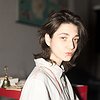Name: Simina Oprescu
Nationality: Romanian
Occupation: Composer, video and mixed-media artist
Current release: Simina Oprescu's Sound of Matter LP is out March 15th 2024 via Hallow Ground.
Recommendations: Luce Irigaray - Marine Lover of Friedrich Nietzsche and Horatiu Radulescu – Plasmatic Music, Vol. 1
If you enjoyed this Simina Oprescu interview and would like to keep up to date with her music, visit her official homepage. She is also on Instagram, and Facebook.
When I listen to music, I see shapes, objects, and colors. What happens in your body when you're listening? Do you listen with your eyes open or closed?
Music has the power to stimulate the imaginative mind. Sometimes to memories. You can hear a cloud passing by in the sky if you pay attention.
I usually listen to music while walking, as city sounds often overstimulate me, and I need to block them with music. There is audio pollution that damages the senses, an intolerable corruption of the human space, and pollution prevents listening.
Occasionally, I listen with eyes closed when precision is required while working, as listening together with the visual medium can be distracting, in some cases.
Entering new worlds and escapism through music has always exerted a very strong pull on me. What do you think you are drawn to most when it comes to listening to and creating music?
Music is a particular union of sound; it offers a symbolic form.
I am drawn to a peculiar kind of magical thinking and ethereal worlds, red skies at sunrise. Something that can be explained only in the unknown. A meteorite falling in the cosmic oscillation.
What were your very first steps in music like, and how would you rate the gains made through experience?
Experience may not necessarily be synonymous with discipline, but I believe blind passion, inner drive, and a bit of madness can help achieve a gradual maturity of thinking with sound and creating a composition.
I remember how I listened to classical music as I fell asleep as a child because my mother is a melomaniac. As a result, I believe it shaped receptivity, and I was always drawn to rhythmicity and spectral realms.
Then I started composing because I needed sound for my videos in my first BA. That was a pivotal moment, I believe, as I realized the power of sound and how it fundamentally changes the understanding and perception of an image. I said to myself, ‘I need to go backward.’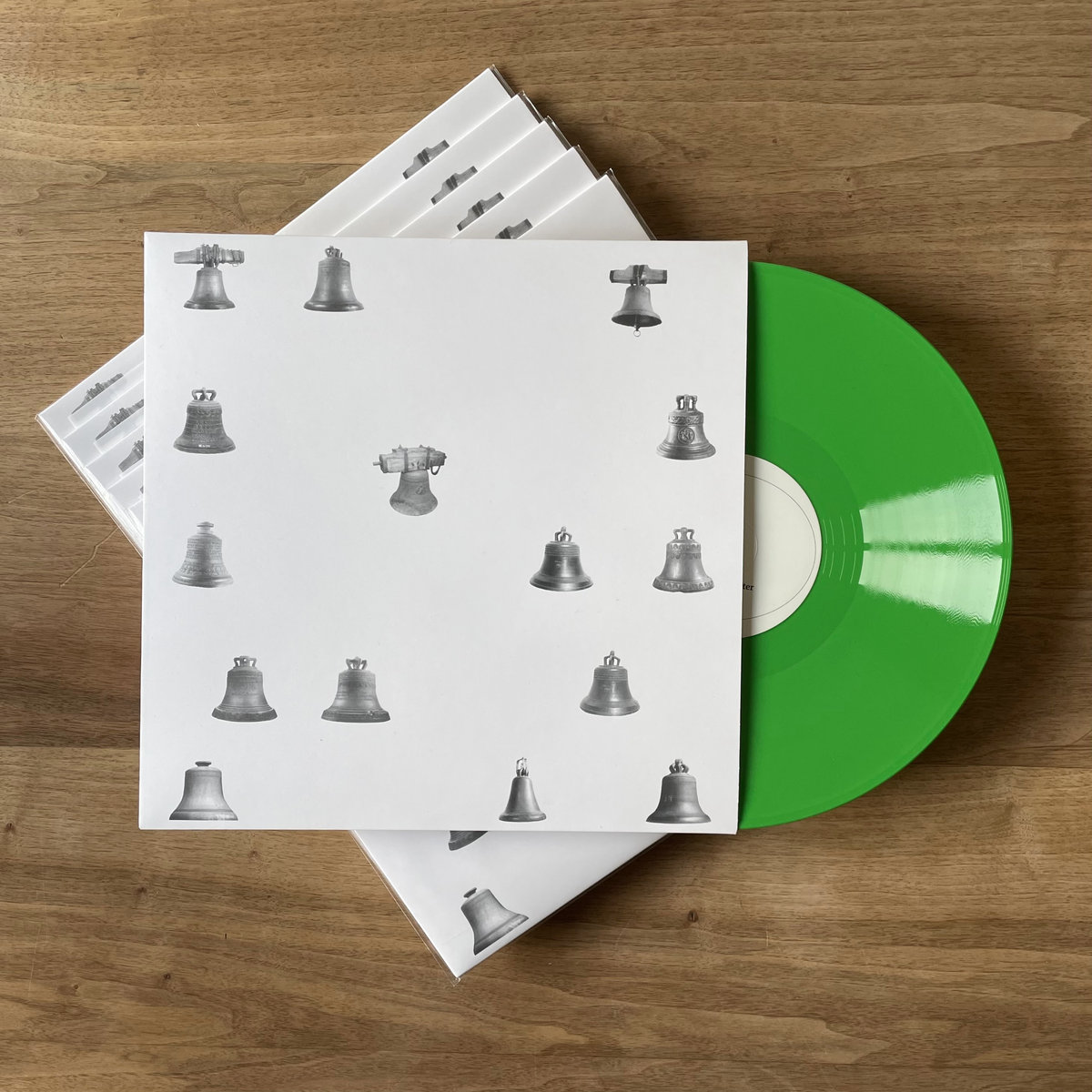
According to scientific studies, we make our deepest and most incisive musical experiences between the ages of 13-16. What did music mean to you at that age, and what’s changed since then?
At that age, it was the beginning of the punk years and noise. I moved with my mom and grandmother from the capital to a small city in Transylvania, and everything abruptly changed. I was towards maximalism, I guess and found a soothing space there for a while.
Now, you can imagine those abysmal feelings changed. I am calmer in musical aesthetics, I think. Nowadays, I find myself working in a more defined and analyzed way that can transmit the physical phenomena of sound.
How would you describe your relationship with your instrument, tools, or equipment?
The only close connection I had with an instrument was my mother’s Blüthner cabinet piano from 1800 which I grew up with. It was such a magical instrument of dreams, hope, and impossibility. Then I had my first acoustic guitar at the age of twelve, and I was absorbed by the wonder of the vibration and oscillation of chords, more than playing the instrument itself.
Nowadays, my electric guitar and synths serve a pragmatic role in terms of searching for and contemplating sound. Going and recording into the field is an exploration of the hidden, an air exercise.
Where does the impulse to create something come from for you? What role do often-quoted sources of inspiration like dreams, other forms of art, personal relationships, politics, etc., play?
Memory and thought are the architecture of depth, and being able to channel them into a sound vessel I believe is the essence of a universal feeling. All are interconnected.
Are you acting out parts of your personality in your music that you couldn't or wouldn't in your daily life? If so, which are these? What, would you say, are the key ideas behind your approach to music?
I believe I am an honest person; acting never suited me, although I dreamt of having a persona. I am much more than I show though; I am hypersensitive. And I think music was a big part of feeling free.
Lately, it pushed me closer to writing and made me rediscover that pleasure. I am looking to mirror an inner part, a thought, a disposition. Sometimes I am playing with sound out of a thought form.
We are generally a perpetual mobile of change, so reflecting that in parallel with what we live in the world can be liberating. I must develop a feeling and be able to have that space between intuition and reality.
If music is a language, what can we communicate with it? How do you deal with misunderstandings?
Listening is psychological; hearing is physiological, as Roland Barthes would say. Exploring psychoacoustics or being interested in psychology, if music is sometimes a Babel tower that crumbles, I am curious even more to explore the cracks between that misunderstanding, self, and the Other, where desires, shadows, and identity intertwine. I usually pay attention to the spectrum of stimuli.
In the past, I was interested in exploring a misplacing of sound, the dichotomy. For example, in a club environment, I found myself playing field recordings or radio drama fragments precisely to see how people react to those sounds about the place they were.
Because there is the one that makes or plays the music but also the other ears listening, thus the work is done both ways.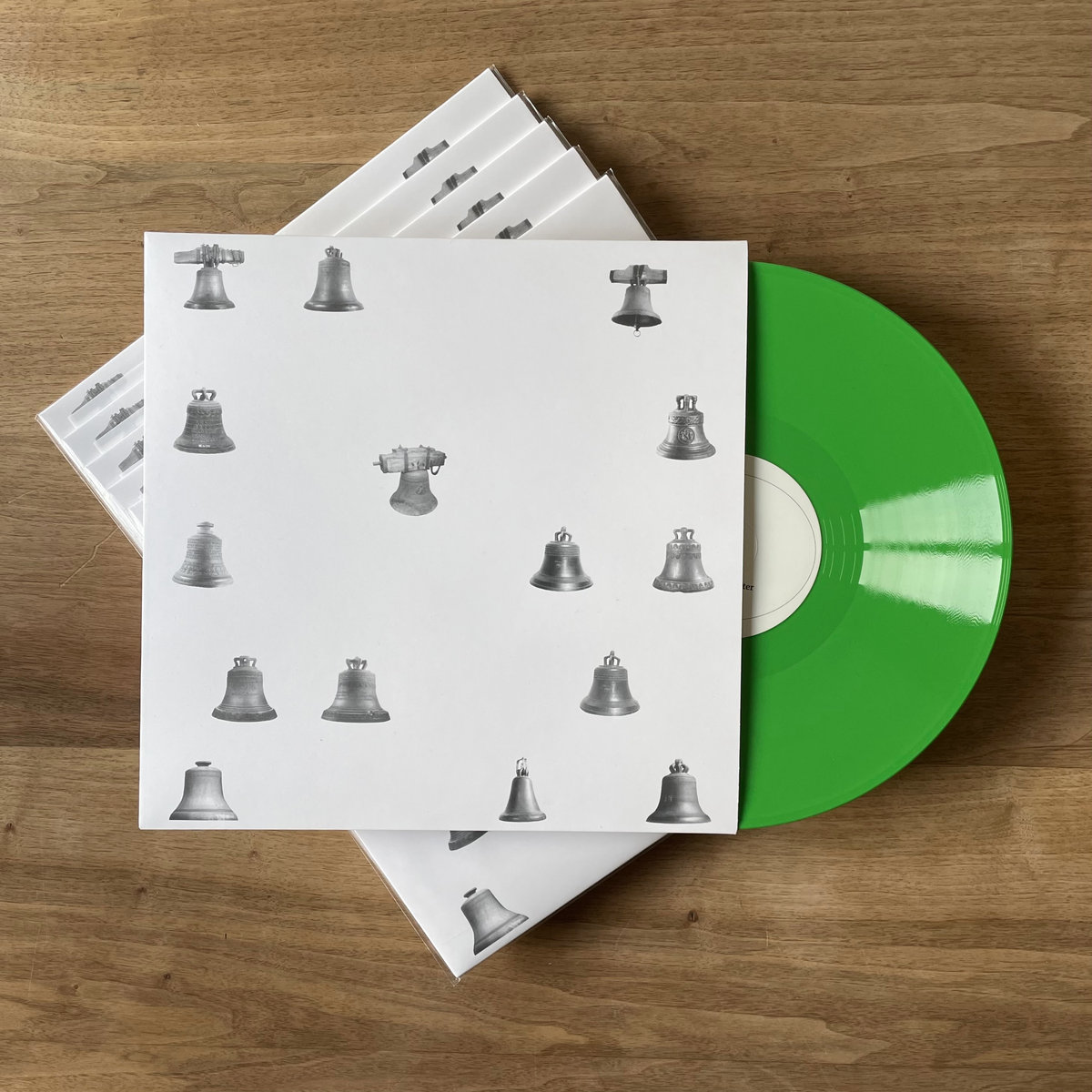
Making music, in the beginning, is often playful and about discovery. How do you retain a sense of playfulness, and how do you still draw surprises from tools, approaches, and musical forms you may be very familiar with?
I have an inherent need to play, a joy, from play and experiments is how I started. When I hear the word “play,” I also understand a kind of participation, something that I always explore in my sound installations. I believe creating a personal relationship and experience for others is the core of what interests me, interaction and gesture.
I pay attention to children and stimuli. I research the psychological effects and why we choose and like one sound over the other.
Sound, song, and rhythm are all around us, from animal noises to the waves of the ocean. What, if any, are some of the most moving experiences you've had with these non-human-made sounds? In how far would you describe them as “musical”?
Non-music can be sensed as a transitory union, harmony, or order, which is a wish for understanding. If I jump into the holographic paradigms and the enfolded-unfolded universe of David Bohm, there I can grasp that a very intense sense of energy is love, but love without content, without a mental image, that lies and lives not in manifest but in the nonmanifest. The nonmanifest is the collective consciousness of mankind.
Everything has a specific musicality if we award the necessary attention to it, of course, there is an abstract way of explaining or hearing musicality. To love and empathize with everything, both human and non-living, one must internalize and personalize each experience. Love unveils similarities by personalizing what it loves. In essence, our understanding of the world is inherently anthropomorphic and mythopoeic.
If I must recall, I think the most rhythmic sound is the one of hay being aired and prepared to be fed to the animals, in the countryside: hay, blackbirds, and the chaotic chirping of sparrows in the bushes. And the omnipresent crickets at dawn, have a strong imprint.
There seems to be an increasing trend to capture music in algorithms and data. But already at the time of Plato, arithmetic, geometry, and music were considered closely connected. How do you see that connection yourself? What aspects of music do you feel can be captured through numbers, and which cannot?
I ran from that at the beginning, working more with emotional thinking against rational one, until I realized that I needed to study it to achieve a specific vision.
I had a fixation, that form that determines a rhythm. If math serves an idea, then it needs to satisfy a desire for clarity. Numbers are the utopia of purity or the idea we can achieve completion through it, a harmony, which part is true.
But I also believe in this duality of combining the intuitive emotional and the rational utopic. In the end, we are in a logarithmic spiral.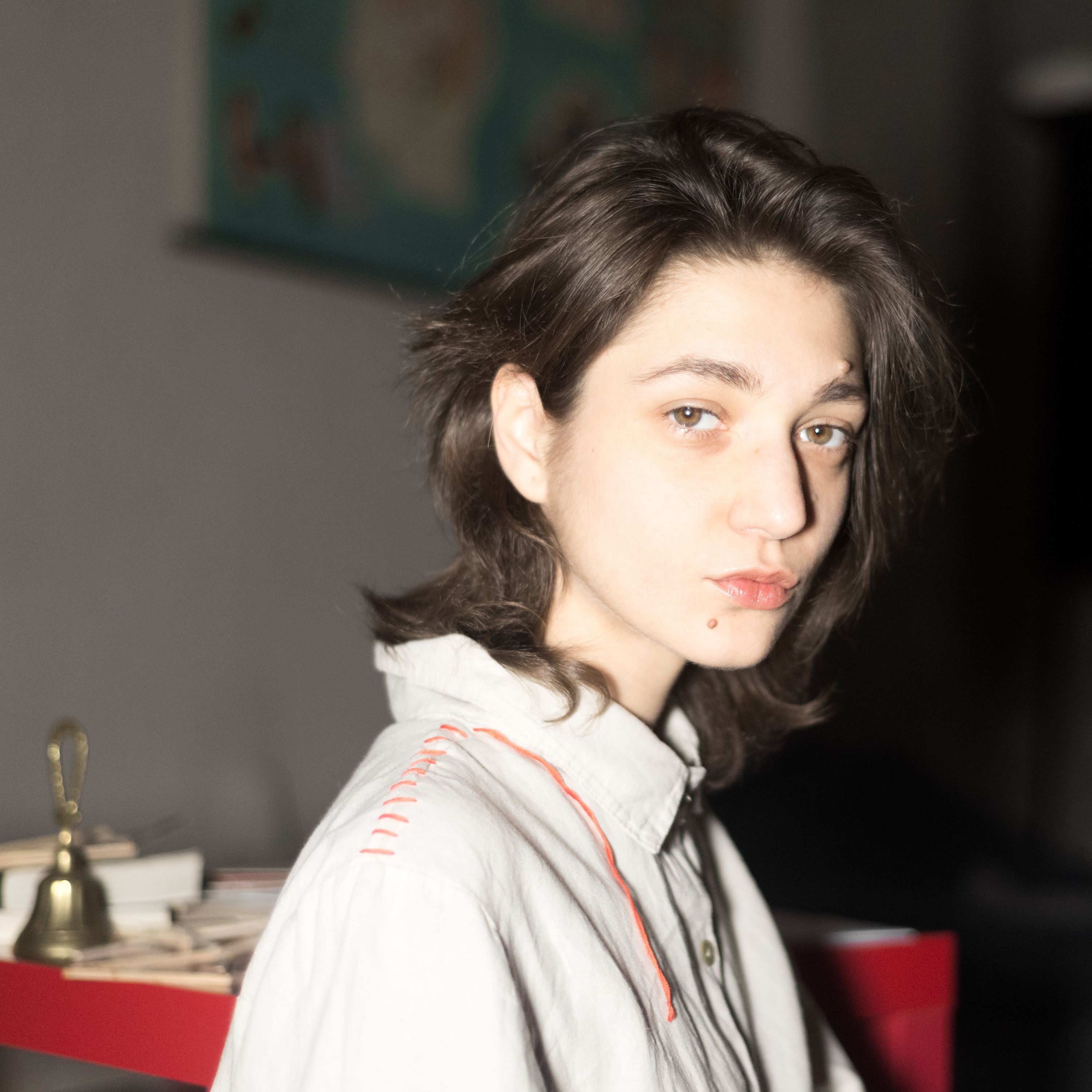
Simina Oprescu Interview Image by Simina Oprescu
How does the way you make music reflect the way you live your life? Can we learn lessons about life by understanding music on a deeper level?
I believe in honesty; what sees the light is a reflection, and is also a duality. You cannot create lightness in the absence of darkness and vice versa.
Music formed my thought process and how I understand the sphere on a macro scale. It shaped my understanding. Practicing it arrives as an intrinsic lesson.
But I think any disciplined vocation and passion toward that something can manifest that. It is the vessel of consciousness and the desire for a greater meaning.
We can surround ourselves with sound every second of the day. The great pianist Glenn Gould even considered this the ultimate delight. How do you see that yourself, and what importance does silence hold?
I don’t believe complete silence exists; if we listen carefully, we can hear the space that echoes the earth's roundness. Maybe we find that silence in an anechoic chamber, but even there you can hear your breath or heartbeat. Silence as void exists only in space.
If I carefully listen, I can map all the sounds, from my room tone to my neighbor cooking, or the cracking sounds of the pipes, my computer fan, and my chair creaks. Silence comes from within and is a deeper understanding of what silence is, closer to breath.
Do you feel as though writing or performing a piece of music is inherently different from something like making a great cup of coffee? What do you express through music that you couldn't or wouldn't in more 'mundane' tasks?
A cup of coffee is something that I see as a habit, an automatic gesture. While writing and performing require more meaning than just boiling water.
Or maybe the feeling of doing it is like boiling water. And maybe, we need music like the caffeine addiction.
Ok, I see your point. I think the role of a creative mind is to have an impossible thought and do their best to achieve it.
If you could make a wish for the future – what are developments in music you would like to see and hear?
This is a difficult question as I consider that no one can predict a musical future, especially in the incoherent and fragmented times that we live in. Though a big part the AI research nowadays is in musical composition, as much as we have an indignation to admit it.
But I think a development in a social way would be inclusion, more stories, more magic, and more poetry. All these I find important to find that wholeness against the demoralization we are living in.



